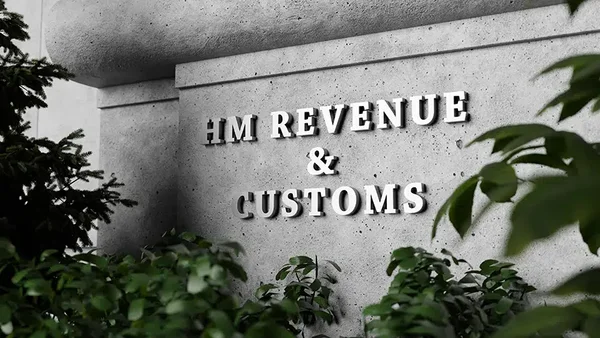Let’s Break This Down Together...
Many people wonder if selling on Vinted or eBay means they need a UTR number. The answer isn’t always straightforward.
This guide walks you through the £1,000 trading allowance, how HMRC decides if you’re trading, and what happens when you pass the threshold. We’ll also look at Vinted and eBay’s specific tax rules.
By the end, you’ll know whether you need to register for Self Assessment and how to stay compliant without stress. Let’s dive in!
Do I Need a UTR Number to Sell on Vinted or eBay?
The short answer is: it depends on your selling activity.
Vinted and eBay are examples of online platforms and digital platforms where people sell goods. A Unique Taxpayer Reference (UTR) is a 10-digit number issued by HMRC when you register for Self Assessment. You only need one if you’re actually trading.
If you’re just selling personal items you no longer want – like clothes that don’t fit or gadgets you’ve upgraded – this is considered casual selling. As a private seller, you typically don’t need a UTR number.
However, if you’re buying items specifically to resell them, or making regular profits from your online selling, HMRC may consider you a trader. If your activity resembles that of business sellers, your tax responsibility and tax compliance requirements increase, and you may need to register.
Ultimately, tax responsibility depends on the frequency and intent of your sales.
The £1,000 Trading Allowance Explained
HMRC gives everyone a £1,000 tax-free trading allowance each tax year. This is your friend!
This means you can earn up to £1,000 from trading activities without needing to tell HMRC or pay any tax on it. Your total sales and gross income across all platforms such as Vinted, eBay, Depop, and others count toward this £1,000 threshold. Earnings from all these platforms are combined for the purpose of the allowance.
Small amounts of miscellaneous income below the £1,000 threshold typically do not trigger tax reporting. However, if your sales exceed the allowance, you must meet HMRC's reporting requirements. Note that the tax year is not the same as the calendar year; reporting is based on the tax year, not the calendar year.
If you exceed the £1,000 threshold, there are tax implications and you may have a tax liability, so it's important to keep accurate records and understand your obligations. If you stay under this £1,000 threshold, you don’t need to register for Self Assessment or get a UTR number.

How to Tell If You're Trading or Just Decluttering
HMRC looks at several factors to decide if you’re trading. Are you buying items with the intention to sell goods for profit? That’s trading. Is your selling frequent and organised rather than occasional? Might be trading.
Do you modify or improve items before selling them? Selling goods in this business-like way could be trading. Are you selling new items rather than second-hand personal possessions? This is considered sell online for profit and definitely looks like trading.
Each sale may be subject to tax if it meets certain criteria. If HMRC considers you a trader, your profits may be taxed and you may need to pay income tax.
Vinted Selling and Tax Rules
Vinted is designed for selling pre-loved items, which works in your favour tax-wise. Since Vinted doesn’t charge seller fees, it’s popular with casual sellers who are just clearing out their wardrobes. If you’re only selling your own unwanted clothes at less than you paid for them, you’re not making a profit, so there’s no income to tax.
But if you start buying clothes just to sell on Vinted, or sell handmade items, that’s trading and the £1,000 allowance applies. Once your Vinted profits exceed this threshold, you must report them to HMRC. Due to new rules introduced in 2024, Vinted may collect information such as your personal details for tax reporting purposes.
You may be asked for your national insurance number or another form of identification when registering or reporting your sales. These are not a new tax, but updated compliance requirements to ensure everyone pays their fair share if their selling activity goes beyond casual.

eBay Selling and Tax Considerations
eBay hosts both casual sellers and business accounts, so the platform itself doesn’t determine your tax status. As a digital platform and one of the major online platforms, eBay distinguishes between a private seller, who sells personal items occasionally, and business sellers, who sell regularly or in larger volumes.
Selling a few personal items occasionally as a private seller won’t usually trigger tax concerns. However, if you’re regularly buying stock to resell, or have high sales volumes, you’ll likely need to register with HMRC as a business seller. For tax purposes, eBay may collect your national insurance information and report the money you make and the items you have sold to HMRC.
Remember that eBay may share data with HMRC, so it’s best to stay compliant from the start. Keeping accurate records of your sales and earnings is important to avoid an unexpected tax bill.
Understanding Capital Gains Tax for Online Sellers
When selling personal items online, most casual sellers won’t need to worry about Capital Gains Tax (CGT). However, it’s important to understand when this tax might apply to your profits. CGT is a tax on the profit you make when you sell certain assets, including high-value personal items. If you sell an item for more than £6,000, or if you’re selling business assets, you may need to pay tax on your profits.
For most people simply selling unwanted clothes or household goods, CGT won’t be an issue. But if you’re selling valuable items like collectibles, art, or jewellery or you’re a business seller moving high-value stock, you could have a tax obligation. Keeping accurate records of your sales and the original purchase prices is essential to work out if you owe tax on your profits.
If you’re unsure whether you need to pay CGT, it’s wise to seek advice from a tax professional. They can help you understand your tax responsibilities, make sure you’re not paying more tax than necessary, and ensure you’re taking advantage of any available allowances. Staying informed about your tax obligations will help you avoid unexpected tax bills and keep your online selling stress-free.

When to Register for Self Assessment
You need to register for Self Assessment and get a UTR if your trading income exceeds £1,000 in a tax year. If you run your business alone, you will register as a sole trader. Profits above the threshold will be taxed, and if you sell high-value items, you may need to report a capital gain. Note that registration and reporting are based on the tax year (6th April to 5th April), not the calendar year.
The deadline for registration is 5th October following the tax year in question (which runs from 6th April to 5th April). Registration is straightforward through the HMRC website, where you’ll register as self-employed.
Even if you’re close to the £1,000 threshold, it’s wise to keep records of all your sales and related expenses. Last year, I nearly missed this deadline after my vintage watch sales unexpectedly took off. I had to scramble to register, which was stressful but manageable.
Online Seller Resources and Support
Navigating tax rules as an online seller can feel overwhelming, but you don’t have to do it alone. There are plenty of resources and support options available to help you stay on top of your tax obligations and ensure compliance.
The HMRC website is a great starting point, offering detailed guidance on everything from self assessment to trading allowance rules. If you have specific questions about your tax situation, you can contact HMRC directly for tailored advice. Many online marketplaces, including eBay and Vinted, also provide helpful resources for sellers, such as tax guides and support articles to help you understand your responsibilities.
For more personalised support, consider working with a tax professional or accountant who specialises in online selling. They can help you navigate complex tax rules, maximise your profits, and make sure you’re paying the right amount of tax. Whether you’re just starting out or growing your online business, having the right support can make all the difference in keeping your tax affairs in order.

Final Checklist for Online Sellers
Before you dive into selling online, make sure you’re set up for success with this essential checklist:
- Register for Self Assessment: If your online sales and other trading income exceed £1,000 in a tax year, register for self assessment with HMRC to stay compliant.
- Keep Accurate Records: Track all your sales, expenses, and profits. Good records make it easier to declare income and pay tax on your profits.
- Understand Tax Rules: Familiarise yourself with the trading allowance, income tax, and capital gains tax rules that apply to online selling.
- Verify Your Identity: Complete any identity verification steps required by online marketplaces and HMRC to avoid account issues.
- Seek Advice: If you’re unsure about your tax obligations or want to maximise your profits, seek advice from a tax professional or accountant.
- Stay Informed: Keep up to date with changes to tax rules and regulations that could affect your online sales and additional income.
- Declare Income: Make sure you declare all your income from online sales, as well as any other sources, on your self assessment tax return.
- Pay Tax: Pay the correct amount of tax on your profits, including income tax and any capital gains tax if applicable.
By following this checklist, you’ll be well-prepared to meet your tax obligations, avoid surprises, and focus on growing your online selling business. If you’re ever in doubt, don’t hesitate to seek advice and stay informed your peace of mind (and your profits) will thank you!
Final Thoughts
For most people selling unwanted personal items on Vinted or eBay, a UTR number isn't necessary – you're simply recouping some of what you spent.
The £1,000 trading allowance gives you a helpful buffer if you do start to make some profit.
If you're buying to resell or your online selling becomes regular and profitable, registering for Self Assessment and getting a UTR is the right approach. When in doubt, keep good records of what you're selling and why – this will help if HMRC ever questions your selling activities.
Stay Ahead of HMRC with Pie tax: Your Online Selling Tax Companion
Tracking your online selling income shouldn't be a headache on top of packaging orders and dealing with buyers.
The UK's first personal tax app, Pie tax, helps you monitor your Vinted and eBay sales against the £1,000 trading allowance, giving you peace of mind.
Our simple dashboard works brilliantly for sellers who also have employment income or other side hustles, showing you exactly where you stand with HMRC. We've designed our app specifically with online sellers in mind, making it easy to know when you need to register for Self Assessment.

Quick and Easy Guide to Add Income & Expenses
Follow these steps to add income & expenses in the Pie app
Swipe right on any eligible transaction to add it as an income and expense you want to declare on your tax return, moving it to the ‘income’ & ‘expense’ tab.Step 1

Use the ‘Quick Add’ feature to manually enter any additional income & expenses not found in your bank transactions for your self-assessment.Step 2












